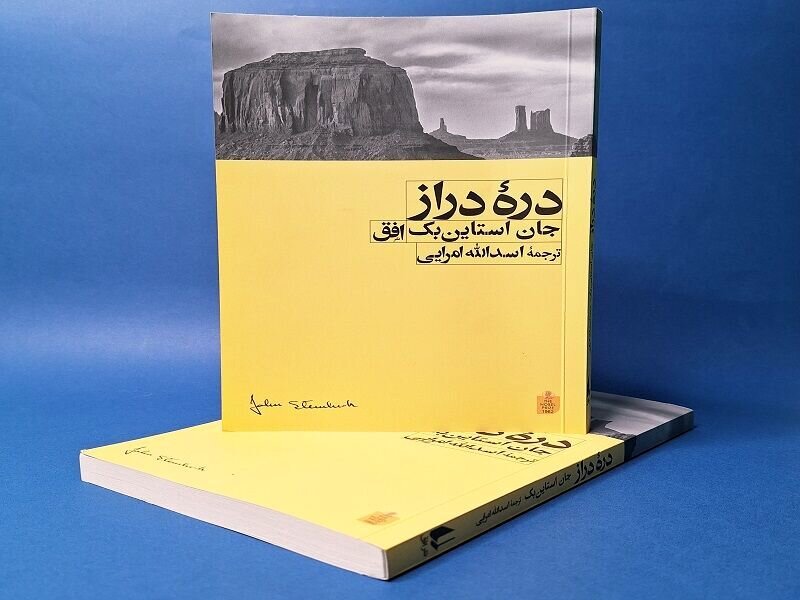John Steinbeck’s collection of short fiction published in Persian

TEHRAN – The Persian translation of “The Long Valley,” a collection of short fiction by John Steinbeck, has been released in the bookstores across Iran.
Veteran Iranian translator Asadollah Amraei has translated the book, and Ofoq Publishing House has published it in 192 pages, Honaronline reported.
Most of the stories appeared originally in literary periodicals and were first collected by Viking Press in 1938.
Ranked among Steinbeck's “finest and best-known” fiction, these are among the most frequently anthologized of Steinbeck's stories, widely read by university undergraduates and high school students.
Among the stories, “The Murder” and “The Promise” were selected for the O. Henry Prize anthology for short fiction in 1934 and 1938, respectively.
This volume of stories, collected with the encouragement of his longtime editor Pascal Covici, serves as a wonderful introduction to the work of Nobel Prize winner John Steinbeck.
Set in the beautiful Salinas Valley of California, where simple people farm the land and struggle to find a place for themselves in the world, these stories reflect Steinbeck’s characteristic interests: the tensions between town and country, laborers and owners, past and present. Included here are the O. Henry Prize-winning story “The Murder,” “The Chrysanthemums,” perhaps Steinbeck’s most challenging story, both personally and artistically, “Flight,” “The Snake,” “The White Quail,” and the classic tales of “The Red Pony.”
John Steinbeck (1902-1968) was an American writer. He won the 1962 Nobel Prize in Literature “for his realistic and imaginative writings, combining as they do sympathetic humor and keen social perception”. He has been called “a giant of American letters”.
During his writing career, he authored 33 books, with one book coauthored alongside Edward Ricketts, including 16 novels, six non-fiction books, and two collections of short stories. He is widely known for the comic novels “Tortilla Flat” (1935) and “Cannery Row” (1945), the multigeneration epic “East of Eden” (1952), and the novellas “The Red Pony” (1933) and “Of Mice and Men” (1937). The Pulitzer Prize–winning “The Grapes of Wrath” (1939) is considered Steinbeck's masterpiece and part of the American literary canon.
Much of Steinbeck's work employs settings in his native central California, particularly in the Salinas Valley and the California Coast Ranges region. His works frequently explored the themes of fate and injustice, especially as applied to downtrodden or everyman protagonists.
SS/SAB
Leave a Comment